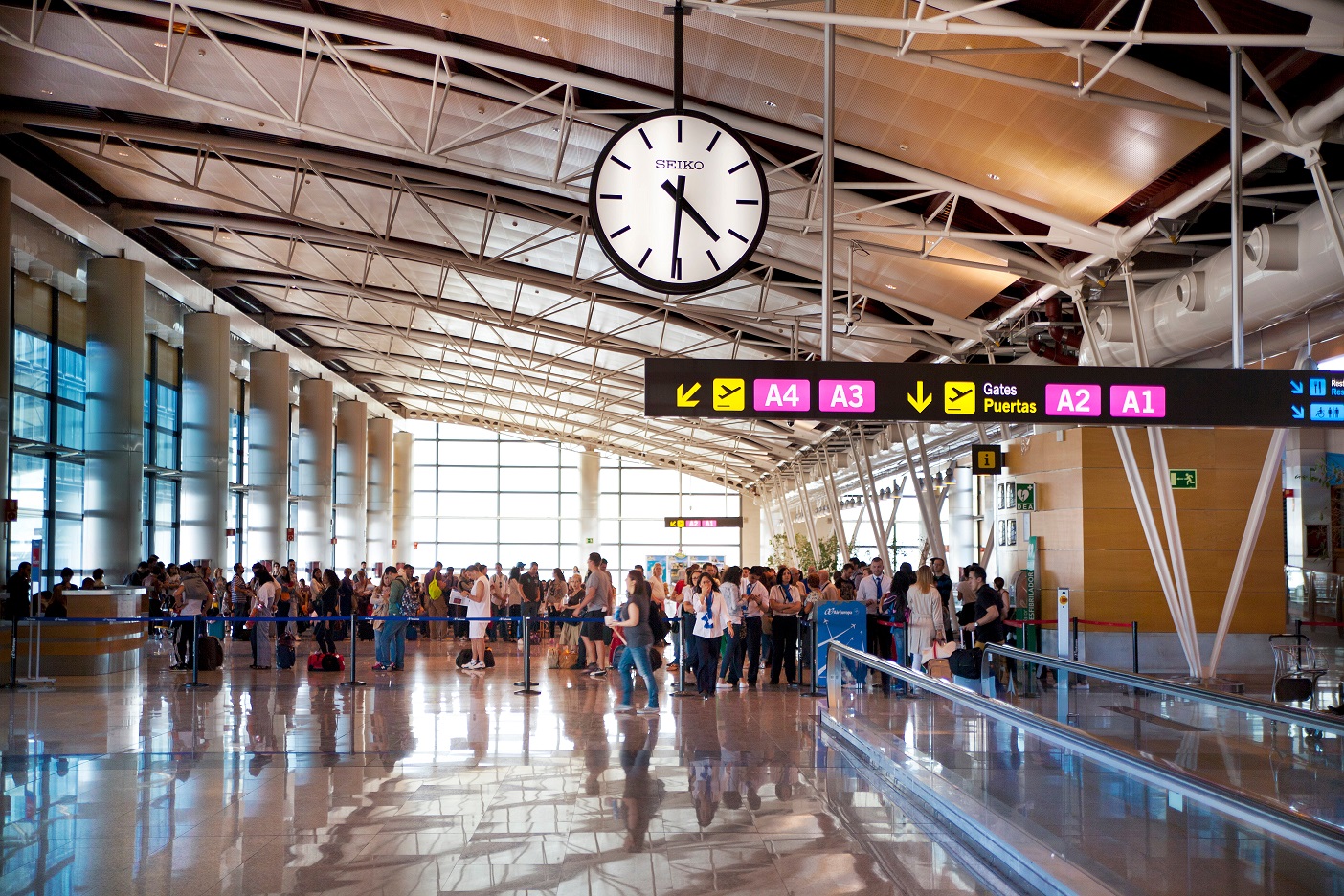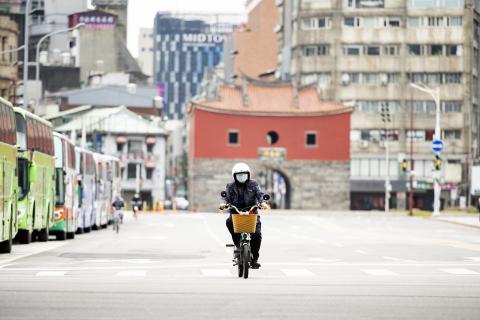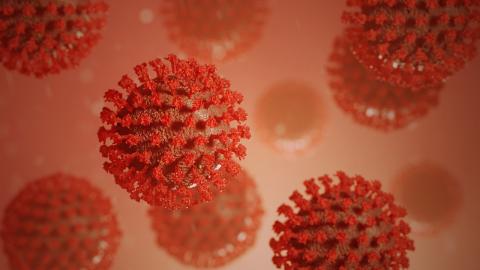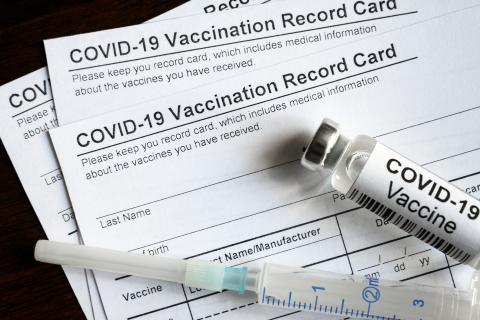Reactions to the control measures at Spanish airports for passengers arriving from China
The Minister of Health, Carolina Darias, announced today at a press conference that in view of the increase in cases of covid-19 in China following the end of the covid zero policy, Spanish airports are going to require passengers arriving from that country to take a negative test for covid-19 or a complete vaccination schedule. The first flight affected by health control measures will arrive at Adolfo Suárez Madrid-Barajas Airport at 18:00 on 31 December.
Added new data published by the Ministry of Health.

Pedro Gullón - aeropuerto China (EN)
Pedro Gullón
Social epidemiologist and doctor specialising in preventive medicine and public health at the University of Alcalá
The first thing to ask about any measure is why it is adopted. On the one hand, if it is adopted for fear of high incidence entering Spain, I believe that both the PCR and the vaccination certificate are of very limited usefulness, given that there is already high community transmission in Spain. On the other hand, if it is adopted because of the possibility of the entry of variants in this growth, we should ask ourselves if there are real reasons why this variant is emerging now in China and not in the USA, where transmission has been uncontrolled for months.
On the other hand, for border control to be effective, it would have to have prior PCR, PCR on arrival and quarantine on arrival, otherwise people who are incubating would be left behind. Finally, if a variant has emerged in China, it is likely that it is already circulating in neighbouring countries, so measures should be extended to all flights, and it should be assumed that there is no transmission here at this stage. As ECDC reports have stated, airport screening measures for new variants can at best delay entry.
In short, under the two potential reasons for doing so, neither of them would make the proposed measures as effective as expected.
Óscar Zurriaga - aeropuertos China
Óscar Zurriaga
Professor of Preventive Medicine and Public Health at the University of Valencia and outgoing president of the Spanish Society of Epidemiology (SEE).
First of all, it is important to have reliable information on what the real situation is in China and in other neighbouring countries that may be more directly affected. And not only about incidence and death figures, but also about which variants are currently circulating in China. It is difficult to make a correct assessment in order to be able to take the most appropriate measures without reliable knowledge of the current situation.
On the other hand, international coordination of the measures to be taken must be implemented and is absolutely necessary at EU level.
Requesting a negative covid-19 test or the full vaccination schedule from travellers coming from China seems reasonable, but will probably not achieve the full effectiveness intended, although it may delay somewhat the potential impact of what is happening in China.
The test requested should be a PCR, and should be recent (maximum 48 hours before). As for the full vaccination schedule, this should be evidenced by an internationally recognised certificate, stating the dates and doses of the vaccination and the vaccine received.
The problem with this measure is that travellers who have departed from China may not arrive directly in Spain, but may have made one or more stopovers in other countries or airports, so passengers would have to be checked according to their initial origin and not according to the origin of the flight, something that is quite difficult and requires international coordination of measures, applied with the same criteria and the same rigour. We have the precedent of the closure of flights with South Africa in November-December 2021 to stop the entry of the Omicron variant, which was not as effective as intended.
If this measure is adopted, it will also be necessary to have a protocol for dealing with people who, regardless of their test and vaccination schedule, show symptoms on entry into the country (something that has already been applied in the past) and to prepare a system for testing at places of entry of travellers in case it is necessary in the event of this possible eventuality. And also to have rapid sequencing of viruses that could be isolated in these people.
In terms of protection and prevention, it should be stressed that, regardless of whether this or other measures are adopted, we must continue to insist on the importance of having the full vaccination schedule, including booster doses, and of following the measures recommended by the situation at all times: use of appropriate masks or avoiding direct contact with other people if they have symptoms or are in crowded or poorly ventilated places, avoiding close contact with vulnerable people without adequate protection, and adequately ventilating enclosed spaces.
It is also important to avoid the risk of stigmatising people based on their origin, something that already happened at the beginning of 2020: we are still in a pandemic and the impact is still global.
"I am president of the Spanish Society of Epidemiology".
Salvador Peiró - aeropuertos China (EN)
Salvador Peiró
Epidemiologist, researcher in the Health Services and Pharmacoepidemiology Research Area of the Foundation for the Promotion of Health and Biomedical Research of the Valencian Community (FISABIO) and Director of Gaceta Sanitaria, the scientific journal of the Spanish Society of Public Health and Health Administration (SESPAS)
It seems to me to be one of those rhetorical measures that have been used so much during the pandemic. It is both ineffective and unnecessary.
1. Despite the news that China has been under-vaccinated, as far as we know they have a highly vaccinated population with a full vaccination schedule (slightly more than Spain and considerably more than some European countries) and half of the population with a booster (slightly more than Spain, although less than other EU countries that have been more successful than us with booster doses). The majority of the Chinese population who are going to travel will have a covid "passport".
2. As everyone should know by now, being vaccinated significantly reduces the risk of developing severe covid if you become infected, but not so much the risk of becoming infected. Especially not with the new omicron sub-lines. Covid passport controls do not (never have) made sense from a transmission control point of view.
3. If the aim is to control new variants (which at the moment do not seem more dangerous than the ones we have at home, which are also new variants such as BQ.1 or XBB), these measures should be applied to many countries, starting with the United States, and we would end up pointing to the countries that sequence the most (which will detect more variants).
4. Spain has a highly vaccinated (>90%) and highly infected population (75% with past infection in the seroprevalence survey of the Valencian Community in early October). The proportion of people with hybrid immunity is very high. This is what keeps us in the current situation of high transmission but few serious cases, and this will not change because there are or are no longer some introductions from China or any other country. The measures have to be assessed in the context of the immune situation we have at any given moment.
In short, it would be better if we were a little more concerned about increasing "quarters" for the elderly and vulnerable and that people with respiratory symptoms (whatever it is, covid, flu or whatever) wear masks and reduce their interaction with other people (especially the elderly and vulnerable).
Adrian Aginagalde - aeropuertos China EN
Adrian Hugo Aginagalde
Spokesperson of the Spanish Society of Preventive Medicine, Public Health and Health Management (SEMPSPGS), Head of Service of the Epidemiological Surveillance and Health Information Unit of Gipuzkoa and, previously, Head of Service of the Population Screening Programmes Unit at the Ministry of Health
Scientific articles published so far point to a low effectiveness of symptom-based controls, vaccination passports and diagnostic tests for active infection in preventing community transmission of a variant of concern. In contrast, genomic surveillance of imported cases may be of interest given the low number of daily passengers received in Spain.
However, it should be borne in mind that most of these flights make stopovers and that variants from other continents do not normally arrive directly, but through intermediate countries with a greater flow of passengers. This is why the effectiveness of border measures against acute respiratory infections of viral origin (SARS, influenza, RSV, etc.) is considered to be low to very low and will depend on the objective, surveillance or prevention.



